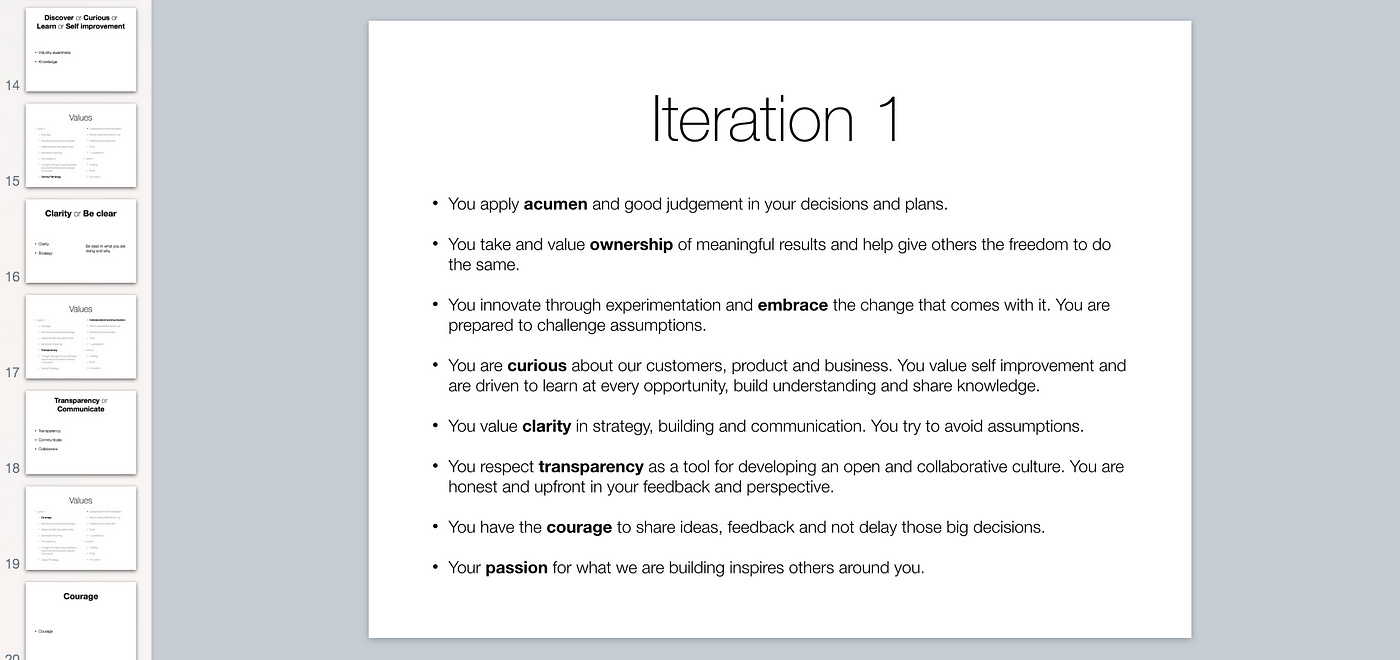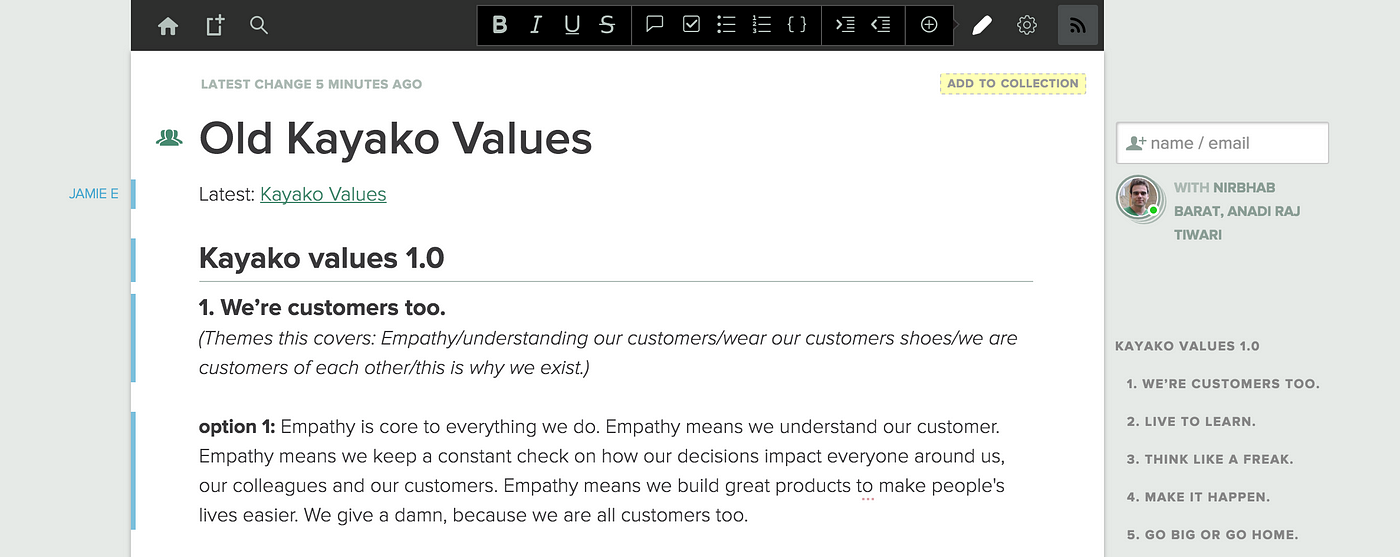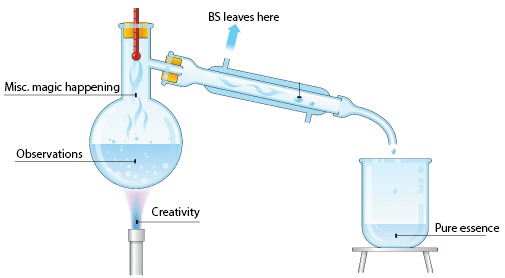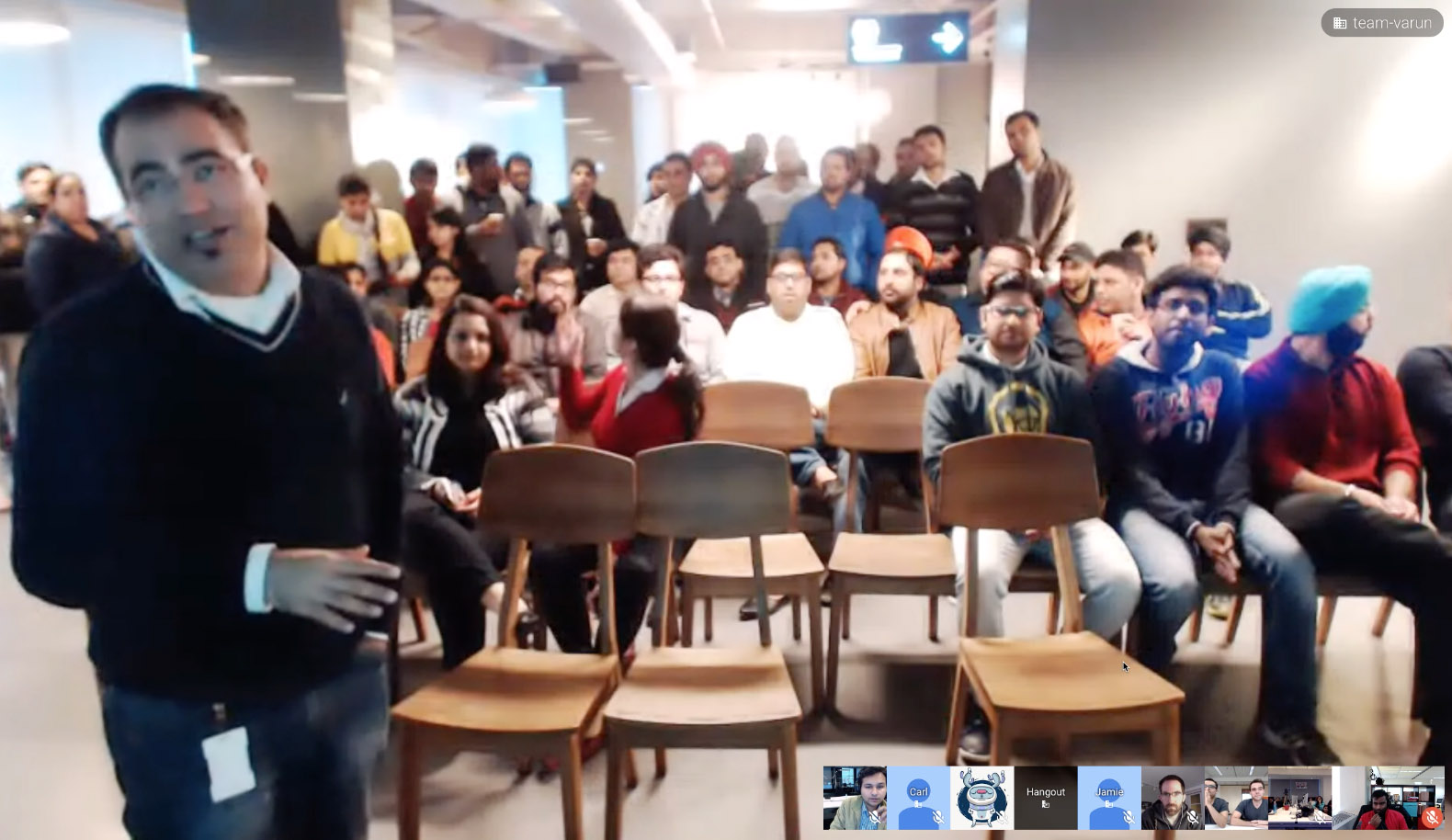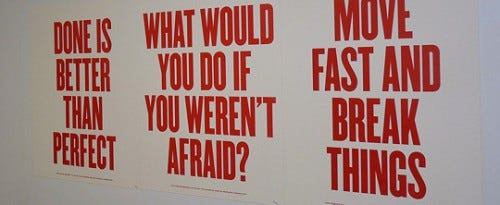In the early days, a startup’s values and culture — the essence — is very much a reflection of the founding team. These values don’t need to be documented, they usually just are.
As new people join the team, the essence will transfer by osmosis. It’s in the air. The essence will be picked up through the sheer amount of time a small team will spend working on tough things together, and will evolve as new people contribute their own ideas and styles.
As the team grows larger and as things move faster, you can no longer rely on your values being passively picked up by others.
In this post we’ll talk about:
- The problems we faced not capturing our values sooner.
- What makes great company values great.
- Our first attempt at capturing values using a “Mars Group” (fail!).
- Our second attempt at capturing values (success?).
- How we are applying and scaling our values today.
“We were late capturing our company values and the cracks started to show”
At Kayako, there’s now 145 of us. Three offices. A large remote team. Distilling our essence and finding a way to articulate it is something we should have done a long time ago.
We started to feel the pain of not distilling our essence into a clear and repeatable format in various ways, including:
- Inconsistencies in style and attitudes between teams. With the absence of a clear and constant articulation of our core values, teams would incubate their own traits, which would trump the company’s.
- Speaking a different language. With these inconsistencies, we realised friction emerging in how we communicated with each other, whether that’s how feedback was given or how feedback was taken.
- Other people hiring the wrong kind of people. Without a crystal clear definition of what our values were, we were not equipping people to be able to hire consistently for values across the company.
- Recognitions and rewards started turning opaque. Without a crystal clear definition of what our values were, it became less clear why certain people were being recognised, rewarded or promoted.
At this stage, these issues were starting to impact our performance.
But if we left it unchecked? Our work would become less fun and less meaningful. We wouldn’t be able to attract and retain great people. We wouldn’t be able to build a great company.
We needed to get everyone back to our roots and capture the core essence of what made Kayako, Kayako. ASAP.
Values for your values: What makes great company values great
We’ve all seen company values before. Some we respect (Moz, TAGFEE). Some revolutionize something (Zappos). Some are so empty you can only laugh (guess which company’s values included the word Integrity?).
But what makes some company values effective, and others not? Why do some company values turn into a religion, but some end up as little more than wall decoration?
We spent some time researching and talking through this question with others. We found that some of the best and most effective company values had the following traits:
1: Values should be memorable and concise. If your values aren’t memorable or concise, they’re already handicapped. Values should be easy to communicate, easy to remember and will then be easy to incubate.
2: Values should be what you do, not just what you say they are. It doesn’t matter what you write down — the only values truth is in what you do, day in and day out. Not just what sounds cool or what looks good on the wall. We really like Netflix’s definition of what makes a true company value:
Actual company values, as opposed to nice sounding values, are shown by who gets rewarded, promoted or let go.
Values should be lived and breathed in the literal sense.
3: Values set expectations. Values make clear who will get hired, and for what. They make clear who will get rewarded and promoted, and why. Values are like APIs for people and culture, and in that sense make communication easier. They ensure compatibility and fit, set clear expectations of each other and remain consistent as you scale.
Values are like APIs for people and culture. They ensure compatibility and fit, set clear expectations of one another and remain consistent as you scale.
4: Values should be weaponizable. As we grow, there will be various demons any startup will face: glut, inertia and complacency. Our values should arm everyone with the weapons to fight these culture-rotting forces before they set in.
We picked up a nice anecdote from the book How Google Works about how Google’s weaponizable values are used on the ground:
[Eric Schmidt] was in an executive meeting in which they were debating the merits of a change to the advertising system, one that had the potential to be quite lucrative for the company. One of the engineering leads pounded the table and said, “We can’t do that, it would be evil.” The room suddenly went got quiet; it was like a poker game in an old Western. […] A long, sometimes contentious discussion followed and ultimately the change did not go through.
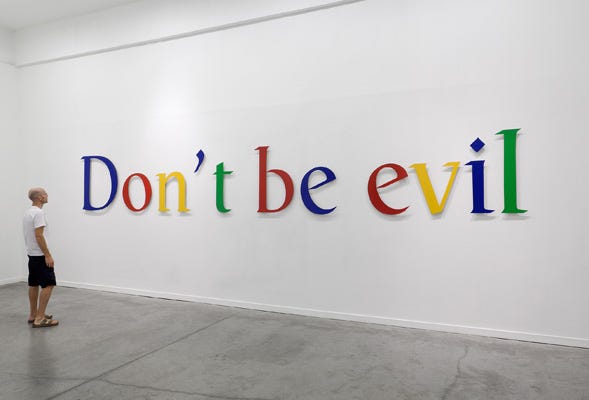
We found that some of the best company values were great levellers in this respect. Google’s “Don’t be evil” value is felt deeply by its employees, who use it to check their moral compass when making decisions, and who are empowered to call others out — no matter what their pay grade (prepare to be called out using your own values.)
Values should act as a touchstone that helps everyone keep a check on whether they are doing the right thing the right way. As Rand Fishkin from Moz puts it, “[our values are] an architecture for decision making.”
Without getting too tactical at this stage, another thing we noticed was that the best weaponizable values were written in a way that they could slot into day to day vocabulary, like in the Google anecdote above, or like our favorite example from the Atlassian values:
Don’t #@!% the Customer.
This ability to use the values verbatim increased the likelihood that they would feature on the ground, in conversations and in slide decks.
5: Values should be strong as hell. Startups grow, and hopefully grow fast. New people will join with their own quirks and cultural backgrounds. New stakeholders with their own agendas will be added. New customers will be won, bringing new demands. New priorities will be loaded onto the company’s agenda.
These are really powerful forces. Without a strong set of values to build your company culture on, these competing forces will start to chip at your company culture.
Startups will go really tough times — it’s almost a statistical certainty. When reading Ben Horowitz’s book The Hard Thing About Hard Things, it seemed like Ben’s startups had it tougher than most. But it was their strong cultural foundations and value system that saved them (and boy, did those folks’ values have to be strong.)
What makes values strong? We generally found this links back to 1: Values are what you do, not just what you say they are. Strong values come through in the company culture built on top of them. Values are strengthened by how much trust and confidence the team has in those values. Without trust or confidence, values are empty words.
6: Values should (mainly) be motivational. Great company values motivate people to go beyond, to step outside of a comfort zone and to accomplish something different, just as much as they prevent something or head off a bad force. Together, all of a company’s values differentiate you from another company.
There isn’t much point in documenting the kind of things good people will default to doing anyway. However, there are some exceptions: Google didn’t really think anyone would be evil, but acknowledged the forces of running a huge business and maximizing profit may start to compromise instinctive good values, so while “Don’t be evil” mat not necessarily be motivational, it was there to head off potentially distracting forces in the future.
Capturing our values: Attempt one
We followed a commonly held ‘best practice’ for our first attempt: form a “Mars group” and get together in room (in retrospect, we don’t feel this practice is best — read on).
With a few founding members and a new senior hire, we kicked off an exercise to paint a picture of where we would like to be in the next 1–5 years.
To capture our company values, we then asked ourselves this: What kind of traits will get us there, and what kind of traits would hold us back?
Or in other words, what does a high performance culture look like to Kayako?
We ended up with a long list of opposites: the positive traits that would help us fulfil our vision and achieve a high performance culture, as well as the antonym of those traits — the things that would hold us back.
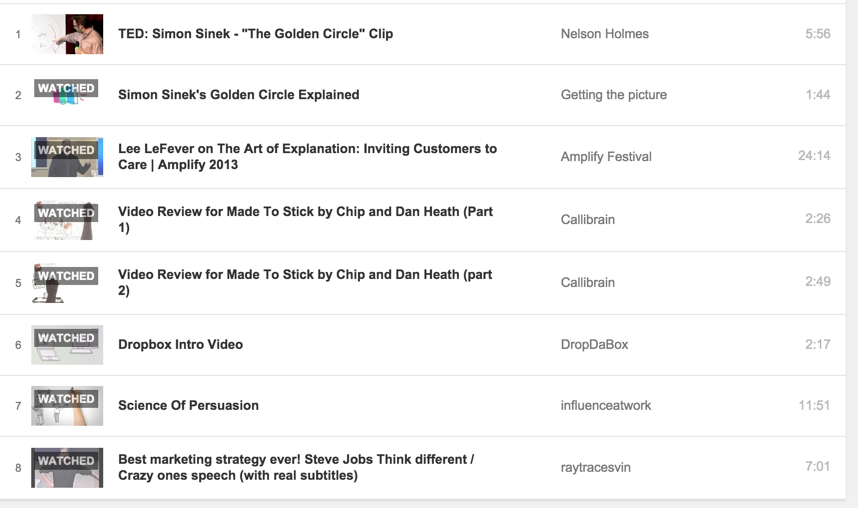 It’s only after spotting “Who is your Bob” and “Why should he bother” that you product and it’s features and functionality come in.
It’s only after spotting “Who is your Bob” and “Why should he bother” that you product and it’s features and functionality come in.


